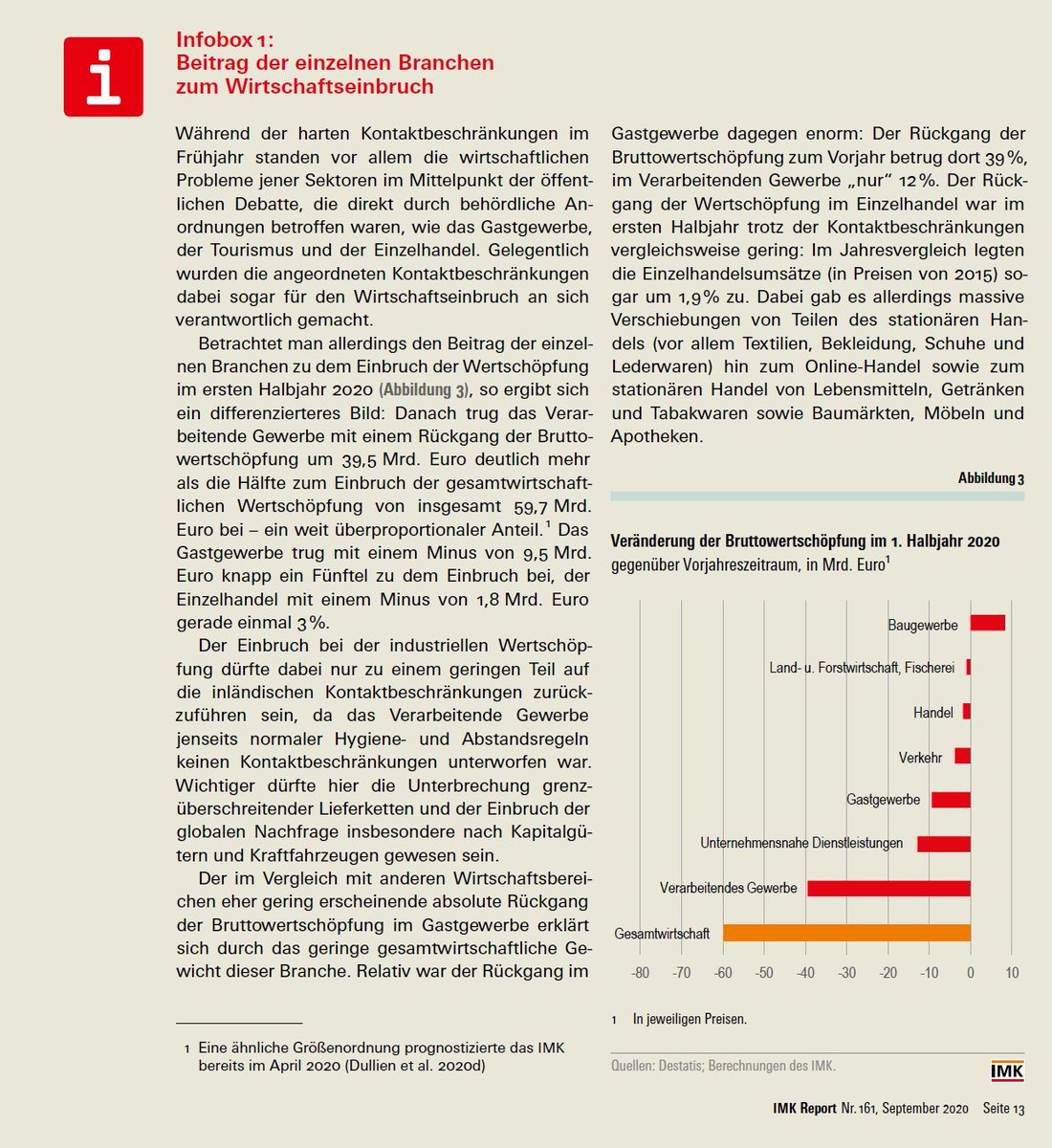
There has been a fascinating debate on #Econtwitter (started by @ojblanchard1) on distributional origins of #inflation.
Interestingly, the distributional view has been (implicitly) taken into account into policy making in Germany over the past year.A 🧵1/
Interestingly, the distributional view has been (implicitly) taken into account into policy making in Germany over the past year.A 🧵1/
https://twitter.com/ojblanchard1/status/1608967176232525824?s=20&t=53HaULTega7toHAlQRmFyw
In the past summer, when inflation in Germany skyrocketed, chancellor Scholz invited social partners (unions and employer federations) and @bundesbank to confidential discussion rounds which he called “Konzertierte Aktion” (“concerted action”). 2/
tagesschau.de/inland/inflati…
tagesschau.de/inland/inflati…
With this term, Scholz made a reference to a similar approach from the 1960s, when the Stabilitätsgesetz (“Stability Law”) had mandated a regular coordination between wage bargaining partners, the different levels of government and the @bundesbank. 3/
zdf.de/nachrichten/wi…
zdf.de/nachrichten/wi…
The new “Konzertierte Aktion” had the form of a number of high-level meetings.
And while there was no formal agreement from these talks, other policy actions were timed to fit the talks. 4/
bundesregierung.de/breg-de/suche/…
And while there was no formal agreement from these talks, other policy actions were timed to fit the talks. 4/
bundesregierung.de/breg-de/suche/…
For example, the commission tasked to design the gas price cap (“Gaspreisbremse”) was pressured to deliver its final report just in time that the results could be discussed at the next meeting of the “Konzertierte Aktion”. 5/
In the end, the government passed a number of packages (including energy subsidies which amount to something like a price cap for 80 % of last years’ energy consumption, but leaving marginal price signals intact) to bolster real disposable incomes. 6/
One important element of the stabilization packages was that additional payments to employees of up to 3000 € per year (beyond past wages) would be free of taxes and social security contributions. 7/
The underlying theoretical idea was: If the government stabilizes purchasing power of workers through fiscal measures, wage increases need not be as high as they otherwise might be. 8/
If this helps to keep nominal labour cost increases at a level that does not fuel inflation (hence does not ignite a wage-price spiral), monetary policy needs to be less restrictive and the overall macroeconomic outcome will be better. 9/
Or in @ojblanchard1’s terms: The government solved the distributional problem by shouldering a significant part of the energy price shock. (On Thursday, at @imkflash we will publish an analysis on the magnitude and the sensibility of the size of the government program.)10/
Union leaders had early on embraced the view that “the energy price shock is too for wage contracts can quickly completely stabilize purchasing power” and had taken the fiscal measures explicitly on board when selling wage settlements to their constituents. 11/
They started arguing with the after-tax increase of their wage settlements rather than the pre-tax increase. Thanks to the tax exemption for the extra payments, the after-tax increases of wage settlements now were often significantly higher than the pre-tax increase. 12/
To give an idea of the magnitude: 3000 € in form of the special payments would cost the employers only 3000 € in labour costs and increases after-tax pay by 3000 €, while 3000 € in regular wage increases would cost the employers 3600 € 13/
and leave a typical metal worker only about 1500 € in additional take-home pay (due to the progressive income tax and social security contributions). 14/
(Both the collective wage contracts for the metal and electrical industries as well as for the chemical industries made heavy use of the tax and social-security-free extra payments in their wage settlements.) 15/
And in fact, wage agreements now point at macroeconomic nominal wage increases which are significantly below the current rate of inflation. 16/
(This might have been reported differently in the international media, but that is because German wage contracts are often difficult to understand. We see unit labour costs increasing in 2023 by only 3.6 %). 17/
https://twitter.com/SDullien/status/1537003178276831234?s=20&t=R08Izbg0Mmo4T_ECGZrGEQ
So, what @ojblanchard1 proposes here might actually work in reality. But of course, you need a climate of trust and collaboration – and also unions which have the capability to act strategically. Both seems to be absent in the US. /18
https://twitter.com/ojblanchard1/status/1608967191059378179?s=20&t=53HaULTega7toHAlQRmFyw
(By the way, this is the result from the older #Corporatism literature: If you have strategically acting wage setters which are large enough to internalize the macroeconomic consequences of their actions, macroeconomic outcomes are often superior.)/END
P.S.: From a US perspective, there is a great substack contribution on this topic by Claudia Sahm (who unfortunately has left twitter) with quotes by @IvanWerning @dianeswonk and @paulkrugman
Highly recommended!
stayathomemacro.substack.com/p/olivier-thro…
Highly recommended!
stayathomemacro.substack.com/p/olivier-thro…
For those who want to read more about the German case in English, we at @IMKFlash have just published a study by @AndrewWattEU on the counter-inflationary measures taken by the German government.
imk-boeckler.de/de/faust-detai…
imk-boeckler.de/de/faust-detai…
• • •
Missing some Tweet in this thread? You can try to
force a refresh







